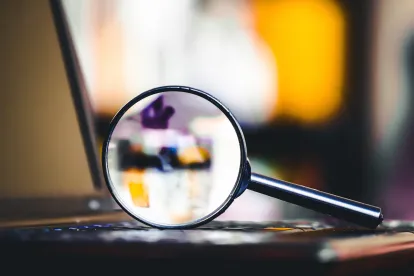As the United States continues to suffer under the pandemic of COVID-19, its government has tried to ease the economic suffering by offering various forms of financial assistance to companies. Congress has passed a series of laws for this purpose, including the Coronavirus Aid, Relief, and Economic Security Act, or CARES Act. The CARES Act and other relief bills have appropriated about $3 trillion for assistance to companies, with more likely to pass in June.
To date, most of the focus of corporate America has been figuring out how companies can qualify for assistance, whether as a small business, an airline, a national security business, a health care company, or one of the other categories created by the relief laws. However, as companies receive these funds, attention is now turning to the oversight and enforcement that is already beginning and will vastly increase over the coming months.
What About the CARES Act Creates Enforcement Risk?
The CARES Act, accompanying guidance, and its loan applications and agreements contain numerous provisions that subject companies to potential oversight or enforcement risk. These include a series of certifications that a company must make as part of the application process, and legal requirements for administering the money. For example, in order to receive a forgivable loan under the Paycheck Protection Program (PPP) for small businesses, an applicant must make the following certifications of current fact:
-
It is eligible to receive a loan under Small Business Administration rules.
-
It understands that loan forgiveness will be provided for the sum of documented payroll costs, covered mortgage interest payments, covered rent payments, and covered utilities, and not more than 25% of the forgiven amount may be for non-payroll costs.
-
It is not engaged in any illegal activity.
Perhaps most ominous are some broader, vaguer certifications:
• The information provided in the application and supporting documents and forms is true and correct in all material respects. • Current economic uncertainty makes the loan necessary to support the company’s ongoing operations.
Depending on the program, applicants may face other requirements that create enforcement risk, such as:
• A prohibition on stock buybacks.
• Limitations on executive pay.
• Limitations on the number of its employees. • Prohibitions on laying off employees.
• Operating in a specific industry.
Moreover, companies in certain specific lines of business face their own set of restrictions. For example, financial lenders:
• Are restricted from charging an interest rate greater than 4% annually over ten years
• May not charge loan fees or a prepayment penalty to borrowers
• Are required to gather borrower certifications and verifying documentation showing that funds were used for payroll and covered expenses.
On the other hand, for healthcare providers to receive money from the healthcare relief fund, they must attest that:
• They provided diagnoses, testing, or care for individuals with possible or actual cases of COVID-19.
• The payment will only be used to prevent, prepare for, and respond to coronavirus.
• They will seek reimbursement only for healthcare-related expenses or lost revenues that are attributable to coronavirus.
All of the above representations and certifications present risk the U.S. Government may audit or investigate recipients to ensure that they comply with the requirements of the Act. Other requirements of the Act, which are not reproduced in the certifications, provide further risk.
What Happened Last Time?
We have seen this movie before. In 2008-09, America faced the Great Recession. Congress appropriated money to relieve the economic downturn, including the Troubled Asset Relief Program and the American Recovery and Reinvestment Act. These totaled about $1.2 trillion, only one third of what has already been spent in 2020. The financial assistance led to significant oversight and enforcement activities by the U.S. Government, including investigations by the Justice Department and multiple inspectors general, highly publicized Congressional hearing, 300 defendants sent to prison, and $11 billion in fines and disgorgement. This time may well be worse.
Who Will Conduct the Oversight and Investigations?
Any Act of Congress is subject to oversight and enforcement as part of the regular functioning of the U.S. Government. However, both because of provisions creating new enforcement mechanisms, and because of the unusual spotlight that shines on CARES Act funds, the amount and intensity of oversight will be enhanced in the wake of the COVID pandemic.
First, the Department of Justice is charged with enforcing this law. Indeed, it has already initiated prosecutions relating to COVID relief, and that is just the beginning. Through its 93 U.S. Attorneys around the United States, DOJ has the ability to investigate and prosecute crimes, such as fraud or false statements to the federal government, in dozens of jurisdictions at once. Moreover, DOJ’s Civil Division pursues civil actions for misuse of government funds, often working cooperatively with individual whistleblowers who step forward to report the illegal behavior.
In particular, the False Claims Act is the federal Government’s primary litigation tool in combating fraud against the Government. Not only does it permit the Government to pursue fraud; it also individuals to alert the government to such activities by filing a complaint in the government’s name and ultimately sharing in the recoveries up to 30%. Needless to say, this is an attractive incentive for individuals, and will attract particular attention in the context of company compliance with CARES Act funding requirements.
In addition to DOJ, every agency with responsibilities relating COVID-19 relief has its own internal watchdog in the form of an Inspector General, who is charged with investigating allegations of waste, fraud and abuse relating to the agency. These agency IG’s are themselves already gearing up for COVID-19-related audits and investigations. In fact, the Small Business Administration has announced plans to audit all CARES Act loans worth over $2 million and conduct spot check audits on others. In addition to the SBA, we can expect that IG’s at Treasury and Health and Human Services, among others, will be active in this area. Indeed, Congress signaled its desire for agency IG oversight by appropriating $140 million specifically for this purpose.
Not satisfied by relying on existing IG’s, Congress also created a new IG – The Special Inspector General for Pandemic Recovery, specifically authorized to investigate activity related to the CARES Act. This office will do nothing but conduct audits and investigations relating to the CARES Act. Going even further, Congress also created an Accountability Committee, composed of about two dozen existing inspectors general, charged with overseeing the entire CARES Act, and gave them $80 million to do so.
And this multiplicity of oversight and enforcement entities does not stop in the Executive Branch. Congress has authorized multiple Legislative Branch bodies that will be looking hard at implementation of COVID-19 relief. In the CARES Act itself, it created a new Congressional Oversight Commission, composed of four Members of Congress appointed by party leadership in each chamber of Congress, with a chair agreed to by the Speaker of the House and the Senate Majority Leader.
In addition, the House of Representatives has appointed a Select Committee to conduct oversight of the Act. It will be chaired by one of the most senior Democratic lawmakers, James Clyburn of South Carolina. In turn, Republicans will be represented by one of the President’s closest Congressional allies, Representative Jim Jordan of Ohio. The seniority of these two committee leaders indicates the importance that has been placed on this Committee.
The Select Committee, however, is unlikely to displace existing oversight committees that will take their piece of CARES Act oversight. In particular, the House Committee on Oversight and Reform has broad jurisdiction to conduct investigations, and
is renowned for its high-profile, often combative hearings. On the Senate side, the Permanent Subcommittee on Investigations of the Senate’s Homeland Security and Governmental Affairs Committee, has a reputation for deep, lengthy and detailed investigations of private sector companies. It is likely to reprise a role it played in the aftermath of stimulus funding during the Great Recession, conducting detailed investigations into the alleged misuse of those funds.
Finally, the General Accountability Office, an investigative arm of Congress and the primary audit institution of the federal government, has been given $20 million to audit and investigate activities relating to the CARES Act. It can also be expected to delve deeply into the use of CARES Act money.
What Does this Mean for Companies that Receive Assistance?
The multiplicity of requirements in the CARES Act, the proliferation of bodies empowered to look into abuse, and the aggressive scrutiny that many in the United States are now demanding all mean that the coming years will bring investigations, audits, lawsuits and prosecutions for companies that were not careful in applying for and receiving these federal funds. Those companies should make sure to document their compliance with the Act, resolve any uncertainties they have about funds they received, and be prepared to answer probing questions should the U.S. Government contact them.



 />i
/>i

